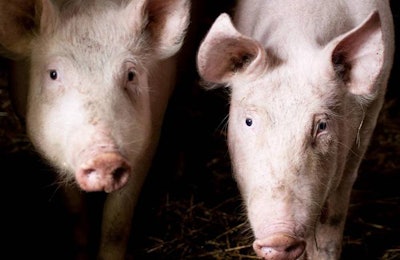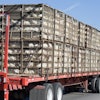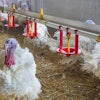
Researchers in Beijing have developed genetics that allow them to raise pigs with 24 percent less body fat than regular, lard-laden swine. The National Academy of Science report regarding the study said, “Modern pigs lack functional UCP1, which makes them susceptible to cold and prone to fat deposition and results in neonatal mortality and decreased production efficiency.” Researchers say their technique could potentially help pigs stay warmer, grow faster and healthier, all while reducing costs for breeders.
The scientists reported that they have created 12 healthy pigs with a 24 percent decrease in body fat. The scientifically altered pigs are being referred to as UCP1 knock-in (KI) pigs, the report says, with “improved ability to maintain body temperature during acute cold exposure, but they did not have alterations in physical activity levels or total daily energy expenditure.” This resulted in the decrease in body fat previously mentioned.
The new finding may help producers cut down on the need for heat lamps for young piglets to prevent death due to colder temperatures.
The researchers' change to the hogs is using a protein in piglets that creates a brown-fat rather than the well known white fat, known to most as lard. The protein added is CRISPRK/Cas9. Although, scientists were successful with the farrowing of 12 male piglets with the modified protein that was out of 2,553 embryos.
When those 12 hogs went to harvest they offered the same amount of muscle as a typical hog with normal fat content. The new finding may help producers cut down on the need for heat lamps for young piglets to prevent death due to colder temperatures.
The report concluded that “UCP1 KI pigs are a potentially valuable resource for agricultural production through their combination of cold adaptation, which improves pig welfare and reduces economic losses, with reduced fat deposition and increased lean meat production.”
However, it is unlikely that the new findings will make a large impact on the global pig market. Not only would the altered pig need to be approved by the FDA, but it is unlikely that consumers would accept a genetically altered form of bacon. Especially from the millennial generation who has forced all meat animal industries to offer a natural option.

















